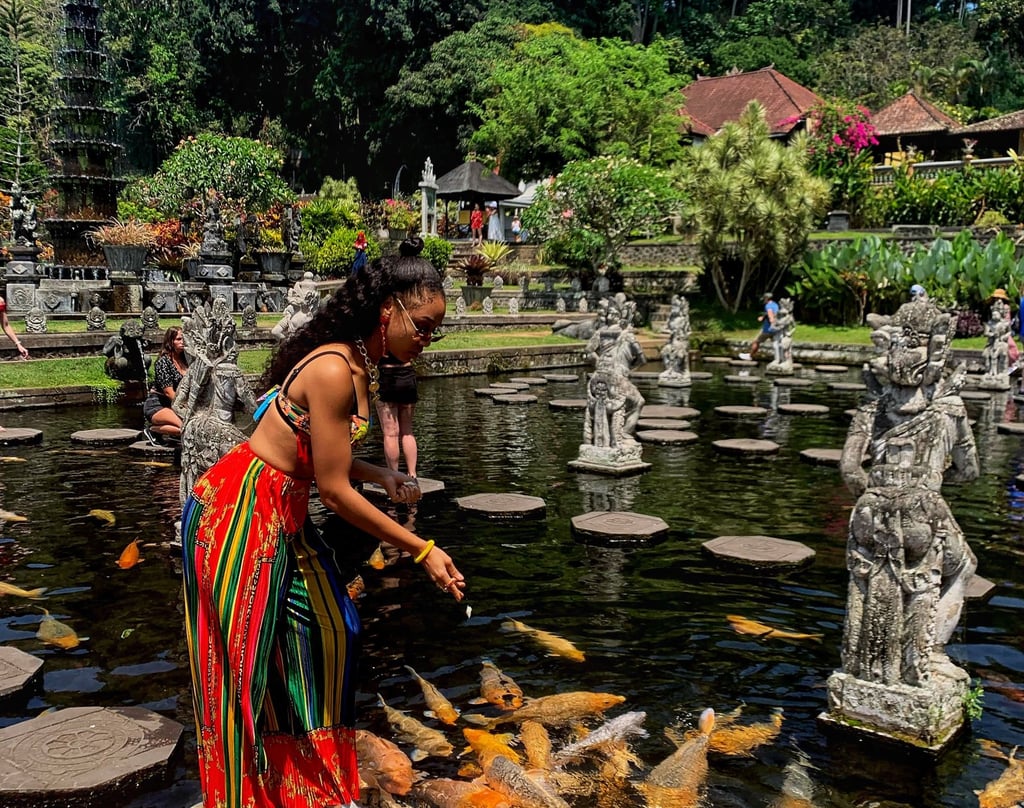Free Gift with Closet Sale PUrchase!
Ethical & Conscious Travel in Bali: What to Know Before You Go
Travel isn’t just about what we do, it’s about the impact we leave behind. The most memorable experiences in Bali don’t involve exploitation-
BALITRAVELASIA
8/17/20252 min read


Bali is paradise but as tourism has grown, so has the concern around how our choices affect local communities, animals, and the environment. Many travelers, my past self included have done things that felt magical in the moment (like riding elephants) without realizing the bigger picture. Today, I want to share what I’ve learned, and highlight safe, ethical, and authentic experiences you can enjoy in Bali instead.
Why You Should Skip Elephant Rides & Baths
Elephants aren’t native to Bali. The ones you see are imported and kept in captivity solely for tourism.
Captivity harms them. Even when it looks like the elephants are “happy,” they’ve often been trained through harsh methods and can’t live naturally in a herd.
No ethical elephant sanctuaries in Bali. Unlike in other parts of Asia (like Chiang Mai in Thailand), Bali doesn’t have any verified sanctuaries where elephants live free of tourist interaction.
Instead, try:
Supporting animal-free conservation or eco-projects (butterfly parks, coral reef protection, rice terrace preservation).
Visiting natural wildlife in West Bali National Park, where you can see deer, birds, monkeys, and marine life in their true habitat.
Ethical Animal Encounters in Bali
Ubud Monkey Forest – A natural reserve where monkeys roam freely. (Tip: don’t feed them and keep your belongings close, they’re cheeky!)
Snorkeling in Menjangan Island – Part of West Bali National Park, with some of the best preserved coral reefs.
Turtle Conservation and Education Center in Serangan – You can learn about turtle rescue and even help release hatchlings into the sea.
Eco-Friendly Travel Tips in Bali
Say no to single-use plastics. Bring a refillable water bottle (refill stations are everywhere).
Choose eco-lodges. Many boutique hotels run on solar, recycle, and use locally sourced food.
Respect sacred spaces. Bali is deeply spiritual—dress modestly when visiting temples and always wear a sarong if asked.
Support locals. Buy from markets, eat at warungs (local food stalls), and take classes (like cooking, batik painting, or silver jewelry making).
Ethical Alternatives to Elephant Tourism
If you wanted that same sense of connection and magic, here’s what I recommend instead:
Jatiluwih Rice Terraces hike at sunrise – A UNESCO World Heritage site, and the view is otherworldly.
Waterfall adventures – Tegenungan, Sekumpul, and Nungnung are breathtaking and don’t involve animal exploitation.
Balinese healing rituals – Try a sound bath, yoga class, or a blessing ceremony with a local healer.
Cultural workshops – Learn traditional Balinese dance, gamelan music, or offering-making (canang sari).
Travel isn’t just about what we do, it’s about the impact we leave behind. The most memorable experiences in Bali don’t involve exploitation, they involve connecting with the land, people, and traditions in ways that honor them. 🌸


